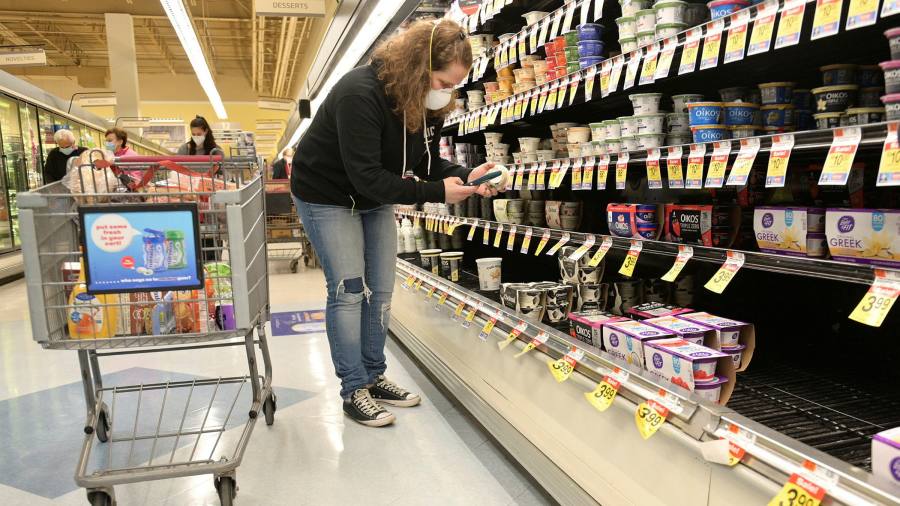[ad_1]
Grocery delivery app Instacart has raised $265m from its existing investors, doubling the company’s valuation following the pandemic boom in demand.
Instacart, the US market leader in the grocery app sector, said the round valued the company at $39bn, up from $17.8bn at the time of its previous fundraise, which closed in November last year.
The company said it intended to use the money to increase its corporate headcount by about 50 per cent this year, a hiring spree that would be spread across the business.
The cash injection comes as the company lays the groundwork for a long-anticipated initial public offering. In January, it announced it had hired Goldman Sachs banker Nick Giovanni as its new chief financial officer. Giovanni had previously been involved in IPOs from Airbnb and Twitter.
“This past year ushered in a new normal, changing the way people shop for groceries and goods,†Giovanni said in a statement announcing the latest round.
“While grocery is the world’s largest retail category, with annual spend of $1.3tn in North America alone, it’s still in the early stages of its digital transformation.â€
The company declined to comment on its timetable for going public.
Last week, Instacart added its first independent board members — Facebook executive Fidji Simo, and Barry McCarthy, a former finance chief of streaming platforms Spotify and Netflix.
Notably, McCarthy was the architect of Spotify’s 2018 direct listing, a process by which a company goes public without creating any new shares.
Over the past year, Instacart has been a key beneficiary of lockdown conditions, with many physical retailers restricting walk-in access to stores.
To accommodate the demand, Instacart’s gig workforce has swollen to more than 500,000 across the country. Over the course of 2020, the company said it added more than 200 retailers and 15,000 additional locations to its app.
However, the company faces growing competition from other delivery apps — such as Uber — and other online grocery offerings from retailers such as Walmart and Amazon.
And, as pandemic conditions subside, interest in online grocery shopping may tail off, suggested Neil Saunders, a GlobalData analyst. He also warned that Instacart is at risk of being forced out by grocery stores once they have their own ecommerce strategies more firmly in place.
“Paradoxically, the drive online has actually made retailers a lot more interested in investing in their own systems,†Saunders said. “If retailers decide to go it alone, it leaves Instacart out in the cold.â€
The company said it would use the latest funding to increase its investment in its fledgling advertising business, as well as Instacart Enterprise, its “white label†service for companies that want to use Instacart’s logistics with their own branding.
The round was led by Andreessen Horowitz, Sequoia Capital, D1 Capital, Fidelity, and T Rowe Price.
[ad_2]
Source link





